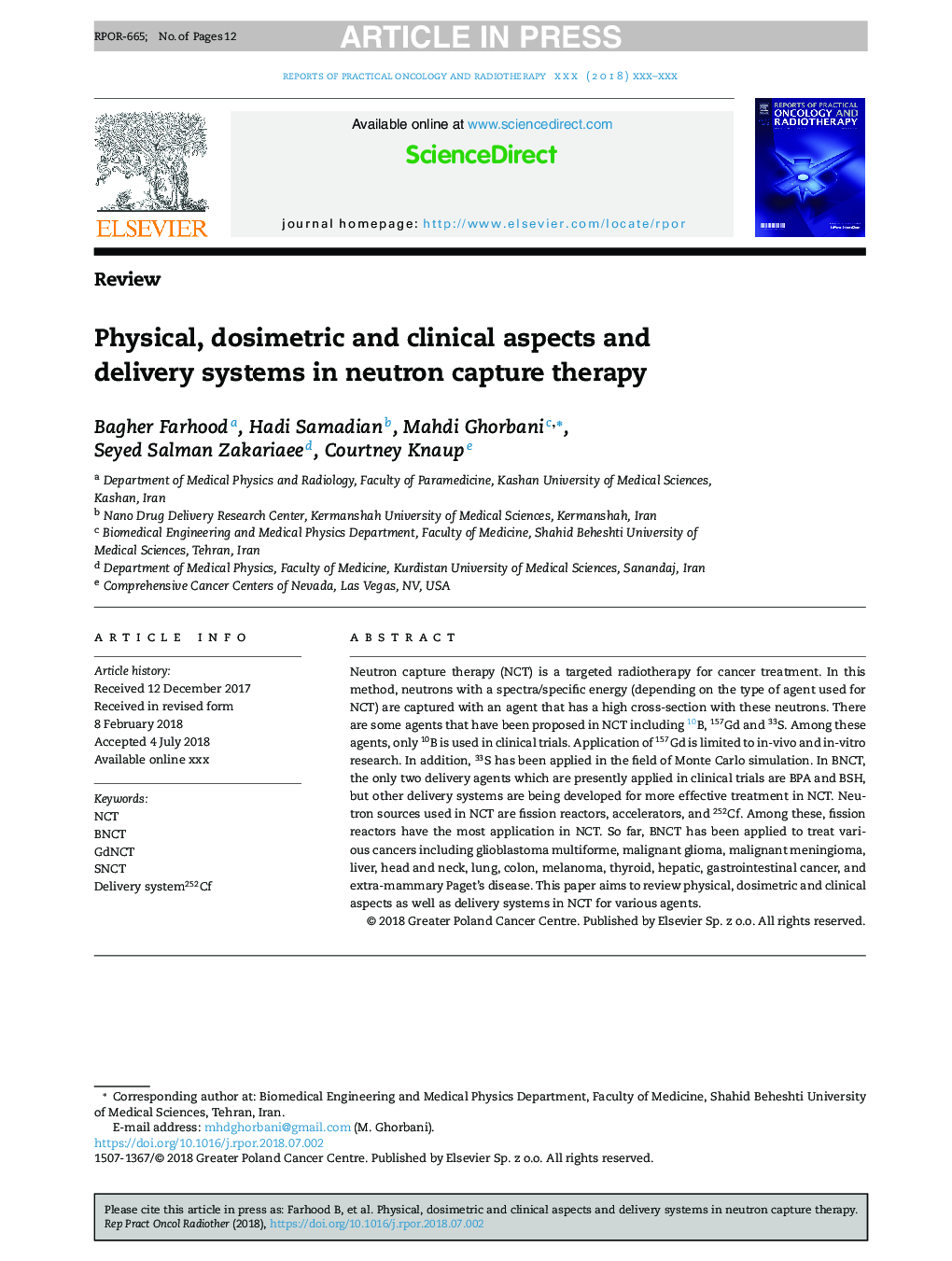| Article ID | Journal | Published Year | Pages | File Type |
|---|---|---|---|---|
| 11007525 | Reports of Practical Oncology & Radiotherapy | 2018 | 12 Pages |
Abstract
Neutron capture therapy (NCT) is a targeted radiotherapy for cancer treatment. In this method, neutrons with a spectra/specific energy (depending on the type of agent used for NCT) are captured with an agent that has a high cross-section with these neutrons. There are some agents that have been proposed in NCT including 10B, 157Gd and 33S. Among these agents, only 10B is used in clinical trials. Application of 157Gd is limited to in-vivo and in-vitro research. In addition, 33S has been applied in the field of Monte Carlo simulation. In BNCT, the only two delivery agents which are presently applied in clinical trials are BPA and BSH, but other delivery systems are being developed for more effective treatment in NCT. Neutron sources used in NCT are fission reactors, accelerators, and 252Cf. Among these, fission reactors have the most application in NCT. So far, BNCT has been applied to treat various cancers including glioblastoma multiforme, malignant glioma, malignant meningioma, liver, head and neck, lung, colon, melanoma, thyroid, hepatic, gastrointestinal cancer, and extra-mammary Paget's disease. This paper aims to review physical, dosimetric and clinical aspects as well as delivery systems in NCT for various agents.
Related Topics
Physical Sciences and Engineering
Physics and Astronomy
Nuclear and High Energy Physics
Authors
Bagher Farhood, Hadi Samadian, Mahdi Ghorbani, Seyed Salman Zakariaee, Courtney Knaup,
